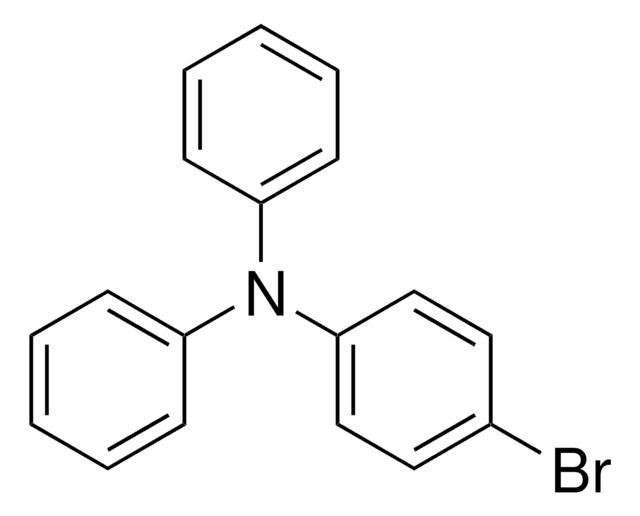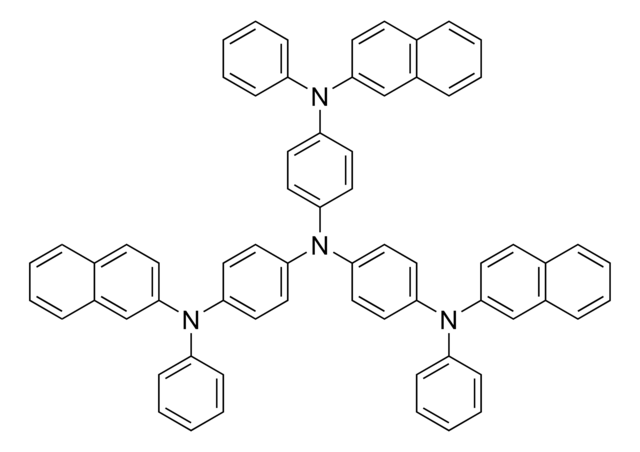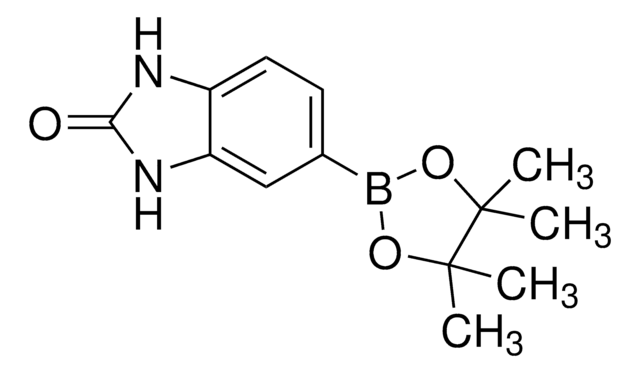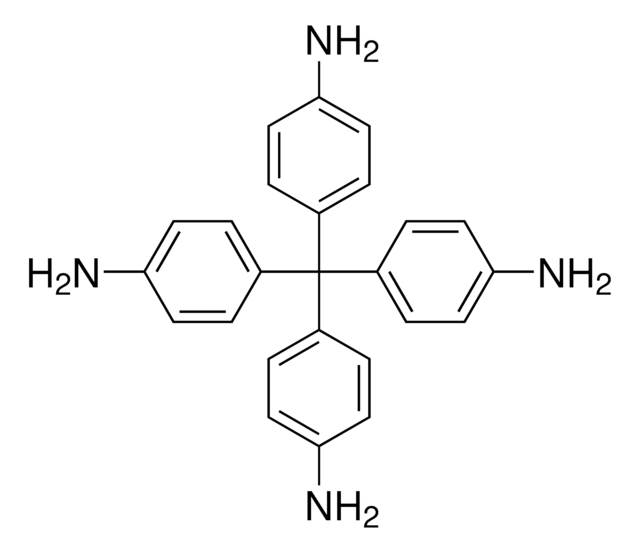All Photos(2)
About This Item
Linear Formula:
(BrC6H4)3N
CAS Number:
Molecular Weight:
482.01
MDL number:
UNSPSC Code:
12352100
PubChem Substance ID:
NACRES:
NA.22
Recommended Products
Assay
98%
mp
141-143 °C (lit.)
SMILES string
Brc1ccc(cc1)N(c2ccc(Br)cc2)c3ccc(Br)cc3
InChI
1S/C18H12Br3N/c19-13-1-7-16(8-2-13)22(17-9-3-14(20)4-10-17)18-11-5-15(21)6-12-18/h1-12H
InChI key
ZRXVCYGHAUGABY-UHFFFAOYSA-N
Application
Tris(4-bromophenyl)amine was used in the synthesis of porous luminescent covalent--organic polymers (COPs).
Signal Word
Warning
Hazard Statements
Precautionary Statements
Hazard Classifications
Eye Irrit. 2 - Skin Irrit. 2 - STOT SE 3
Target Organs
Respiratory system
Storage Class Code
11 - Combustible Solids
WGK
WGK 3
Flash Point(F)
Not applicable
Flash Point(C)
Not applicable
Personal Protective Equipment
dust mask type N95 (US), Eyeshields, Gloves
Certificates of Analysis (COA)
Search for Certificates of Analysis (COA) by entering the products Lot/Batch Number. Lot and Batch Numbers can be found on a product’s label following the words ‘Lot’ or ‘Batch’.
Already Own This Product?
Find documentation for the products that you have recently purchased in the Document Library.
Customers Also Viewed
Zhonghua Xiang et al.
Macromolecular rapid communications, 33(14), 1184-1190 (2012-04-18)
Three porous luminescent covalent--organic polymers (COPs) have been synthesized through self-polycondensation of the monomers of tris(4-bromophenyl)amine, 1,3,5-tris(4-bromophenyl)benzene, and 2,4,6-tris-(4-bromo-phenyl)-[1,3,5]triazine by using Ni-catalyzed Yamamoto reaction. All the COP materials possess not only high Brunauer-Emmett-Teller (BET) specific surface area of about 2000
S A Ponomarenko et al.
Faraday discussions, 174, 313-339 (2014-10-04)
This contribution describes recent progress in the design, synthesis and properties of solution-processible star-shaped oligomers and their application in organic photovoltaics. Even though alternative chemistry has been used to design such oligomers, the most successful approach is based on a
Our team of scientists has experience in all areas of research including Life Science, Material Science, Chemical Synthesis, Chromatography, Analytical and many others.
Contact Technical Service






![4,4′,4′′-Tris[phenyl(m-tolyl)amino]triphenylamine 98.0%](/deepweb/assets/sigmaaldrich/product/structures/370/101/1022653f-ed3b-4991-a82c-269ad710b908/640/1022653f-ed3b-4991-a82c-269ad710b908.png)






